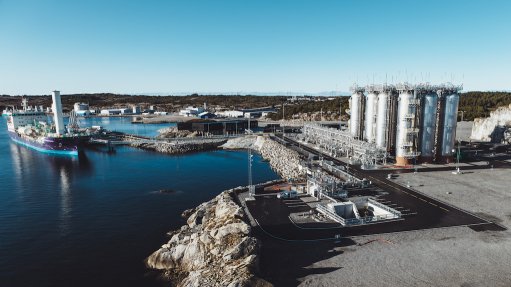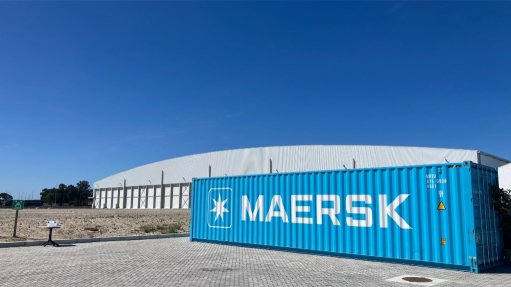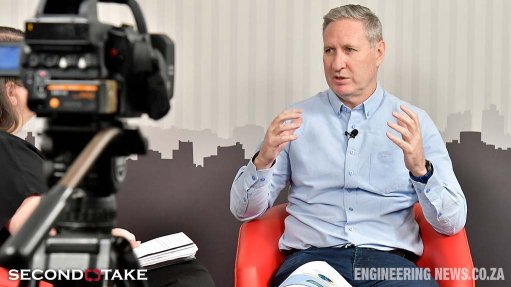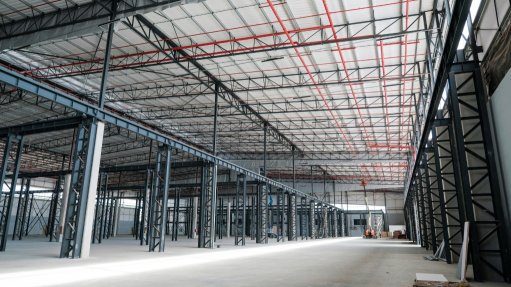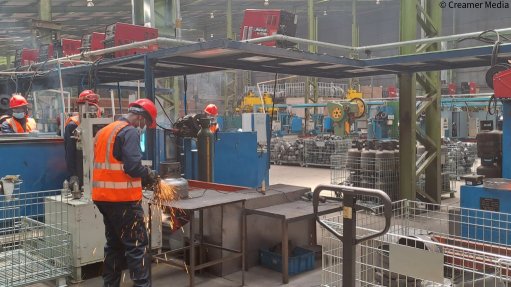Productivity SA proposes economic recovery plan
Employment growth and productivity promotion agency Productivity SA has drawn up a document to potentially address economic shortcomings brought about by the spread of Covid-19 and economic disruptions resulting from the national lockdown.
Productivity SA chairperson Professor Mthunzi Mdwaba says that, at the core of South Africa’s economic problems is the fact that it has very low levels of productivity growth and sustained competitiveness.
The lack of a productivity-driven culture and accountability thereof, as well as policy framework and failure to deploy resources to promote productivity, is impacting negatively on the competitiveness and economic growth of the country, according to Productivity SA.
Productivity SA is submitting the document to the Department of Employment and Labour (DEL), with the intent that it be used in National Economic Development and Labour Council (Nedlac) deliberations, thereby leading to urgent interventions, coordinated by the DEL and Productivity SA.
In the document, Productivity SA has called for South African policy to be guided by a structured and concerted effort to place productivity growth at the pinnacle of key economic growth policies.
The document points to the dual nature and structure of the South African economy requiring urgent restructuring and reform, which it states must be built on policy coherence and policy certainty across government and a close collaborative effort between government, business and labour.
In addition, it recommends that a commitment to ensure that the linkages between the primary and secondary productive sectors of the economy are enhanced.
In addition, it also suggests the development of a combined and constructive drive to overcome the key constraints to manufacturing-led, value-adding growth, with special emphasis on labour-intensive sectors as advanced in the sector master plans.
Through this document, Productivity SA proposes an approach which focuses on four pillars.
The first pillar involves an integrated training and skills development ecosystem, a strategy and programmes to encourage life-long learning, thereby strengthening South Africa’s human capital.
The second pillar points to an integrated enterprise development ecosystem to improve the competitiveness and sustainability of enterprises, with a focus on small, medium-sized and microenterprises (SMMEs).
It also includes a policy decision that financial support by development finance associations to SMMEs should be linked to productivity outcomes, and that non-financial (enterprise development programmes) support should be coordinated.
The third pillar involves an integrated research and innovation ecosystem, which needs to be developed to ensure the provision of productivity- and competitiveness-related value-added information and statistics. This is required to inform evidence-based planning, monitoring and evaluating the impact of Productivity SA interventions.
In this regard, Productivity SA is forging relations with institutions of higher learning, such as the University of the Western Cape and the University of Pretoria, as well as international organisations, such as the International Labour Organisation.
The fourth pillar is the development of a national productivity movement to promote a stronger culture of productivity at all levels and build awareness of the importance of a new productivity mind-set in South Africa.
Productivity SA notes that this is required to pave the way for many more, and more highly paid, jobs, as well as a more inclusive society.
Mdwaba says the Covid-19 crisis will have “absolutely devastating consequences for the world, and South Africa specifically”.
He adds that it also provides the world with an opportunity to recalibrate, go back to basics and readjust the structural systems that serve its people.
Article Enquiry
Email Article
Save Article
To advertise email advertising@creamermedia.co.za or click here
Comments
Press Office
Announcements
What's On
Subscribe to improve your user experience...
Option 1 (equivalent of R125 a month):
Receive a weekly copy of Creamer Media's Engineering News & Mining Weekly magazine
(print copy for those in South Africa and e-magazine for those outside of South Africa)
Receive daily email newsletters
Access to full search results
Access archive of magazine back copies
Access to Projects in Progress
Access to ONE Research Report of your choice in PDF format
Option 2 (equivalent of R375 a month):
All benefits from Option 1
PLUS
Access to Creamer Media's Research Channel Africa for ALL Research Reports, in PDF format, on various industrial and mining sectors
including Electricity; Water; Energy Transition; Hydrogen; Roads, Rail and Ports; Coal; Gold; Platinum; Battery Metals; etc.
Already a subscriber?
Forgotten your password?
Receive weekly copy of Creamer Media's Engineering News & Mining Weekly magazine (print copy for those in South Africa and e-magazine for those outside of South Africa)
➕
Recieve daily email newsletters
➕
Access to full search results
➕
Access archive of magazine back copies
➕
Access to Projects in Progress
➕
Access to ONE Research Report of your choice in PDF format
RESEARCH CHANNEL AFRICA
R4500 (equivalent of R375 a month)
SUBSCRIBEAll benefits from Option 1
➕
Access to Creamer Media's Research Channel Africa for ALL Research Reports on various industrial and mining sectors, in PDF format, including on:
Electricity
➕
Water
➕
Energy Transition
➕
Hydrogen
➕
Roads, Rail and Ports
➕
Coal
➕
Gold
➕
Platinum
➕
Battery Metals
➕
etc.
Receive all benefits from Option 1 or Option 2 delivered to numerous people at your company
➕
Multiple User names and Passwords for simultaneous log-ins
➕
Intranet integration access to all in your organisation







